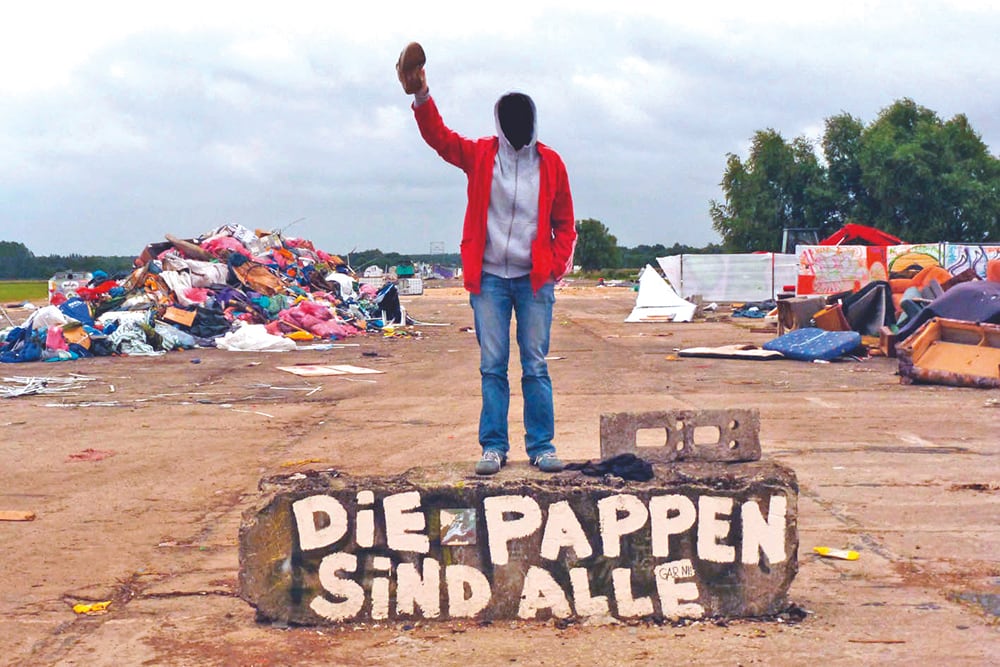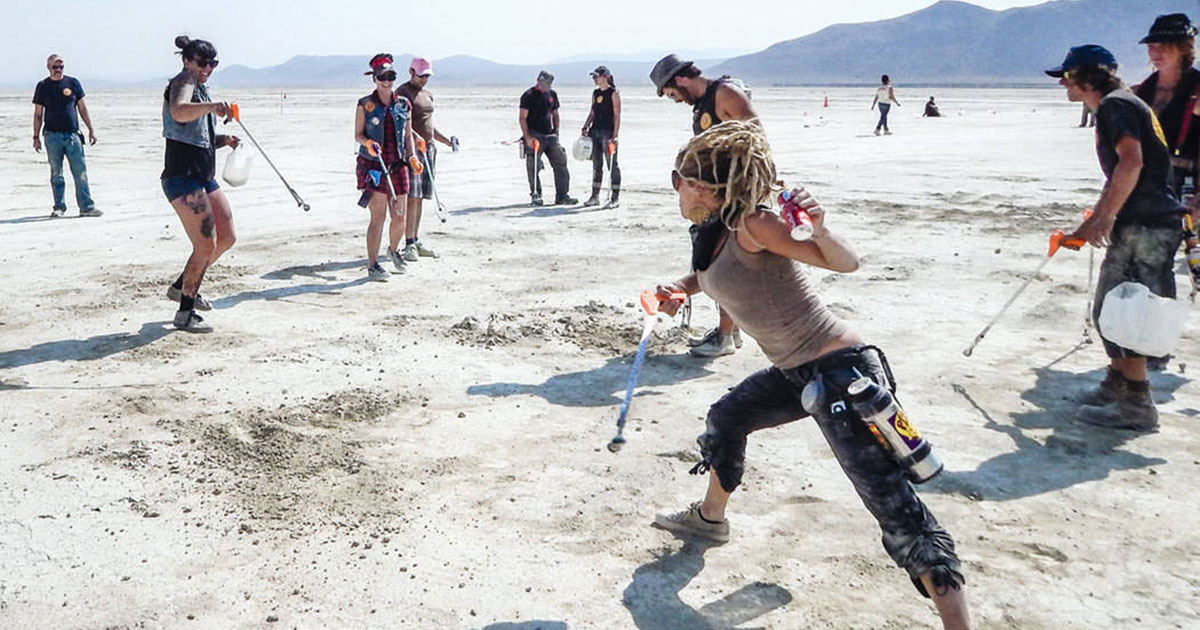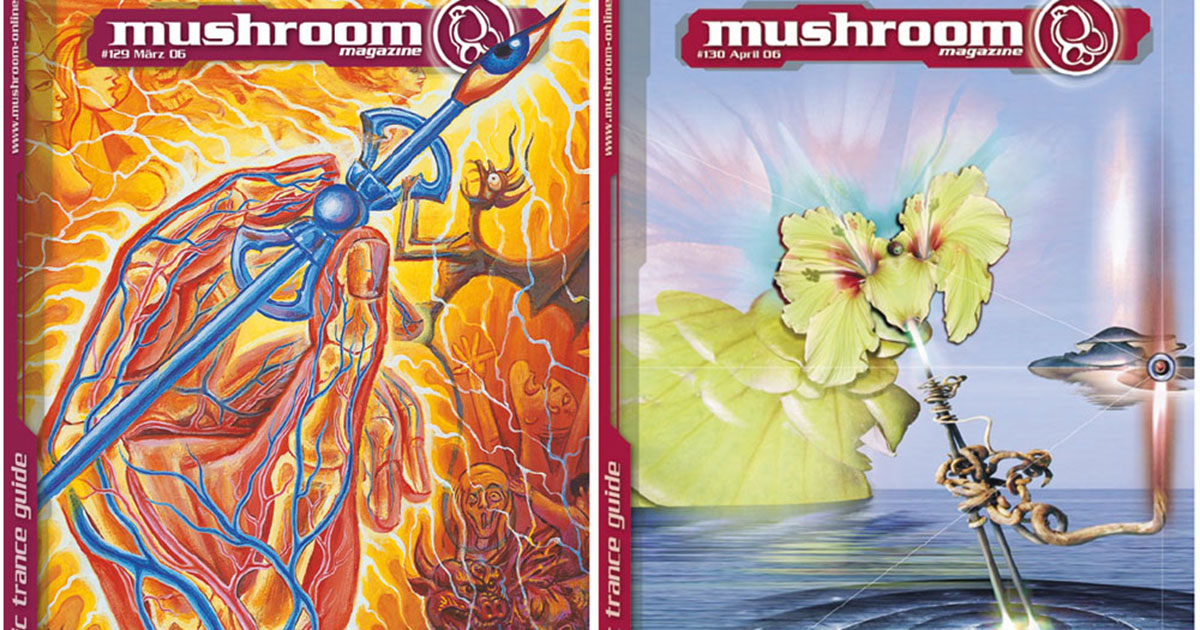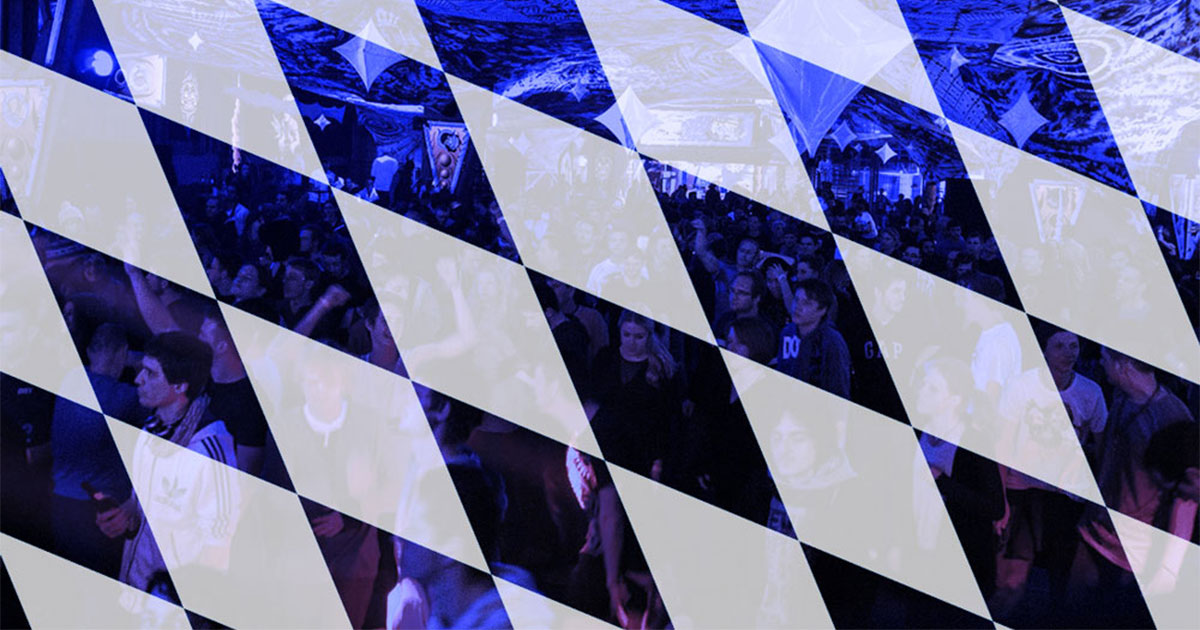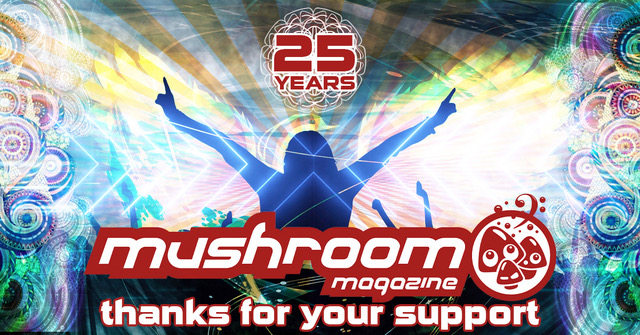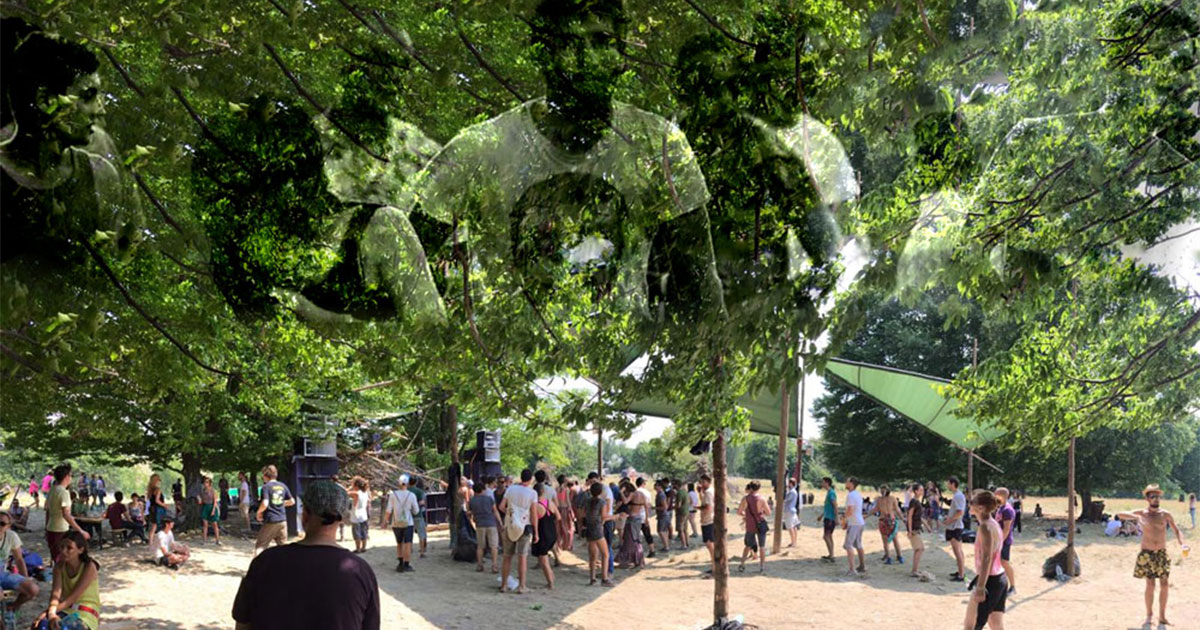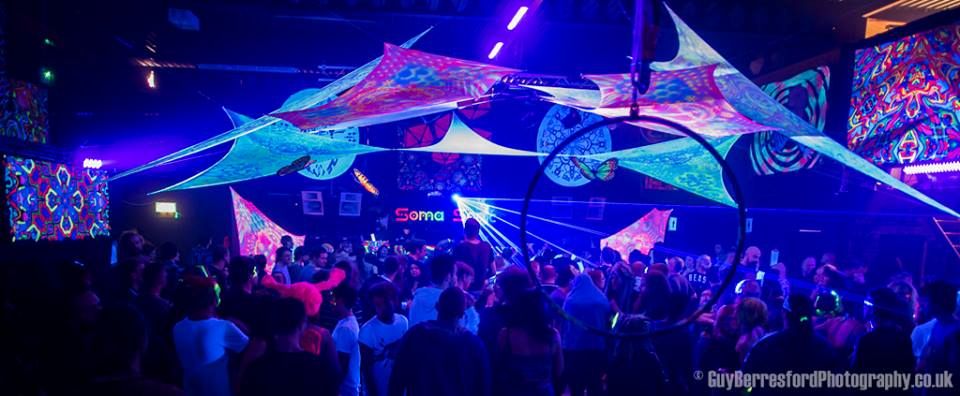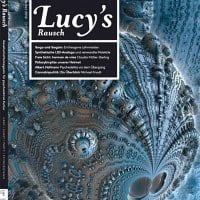
This article has been published in full length in “Lucy’s Rausch N4.”. Reprint by curtesy of Nachtschatten Verlag. Translation of comprised English version by mushroom
Between society’s revolution and psychedelic entertainment
What might be revolutionary and fun when it comes to a temporary utopia’s hedonistic lifestyle might be unsuitable as a permanent future model for human society.
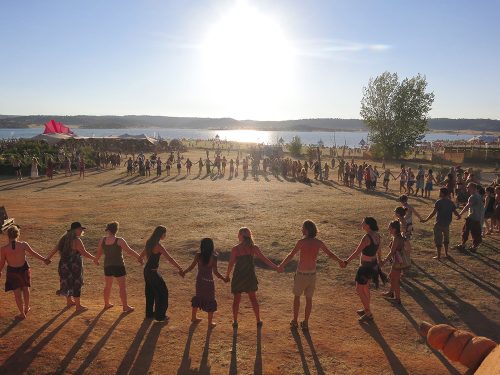 A classic Psytrance open air could be cut down roughly to «Dance Music + Decoration + Chill Out / Chaishop». Transformational festivals sport a more complex formula, primarily three factors are to be observed:
A classic Psytrance open air could be cut down roughly to «Dance Music + Decoration + Chill Out / Chaishop». Transformational festivals sport a more complex formula, primarily three factors are to be observed:
1. Apart from music and dance still forming a central part, psychedelic inspiration is conveyed through systematic physical and mental exercises such as yoga and meditation, lectures and discussions, theatre and fine arts.
2. Transformational festivals are celebrated sustainably.
3. The miraculous things which happen in your minds while prancing around on the dance floor… are viewed as world-changing potential. The objective is to live in more harmony with the planet. Also, to be as ecological as possible. And see trance-dance experience and feeling of unity as a source of inspiration for a utopian society.
 But this can only be the beginning. Because a new world order must manifest itself after the event as well. Words must be followed by deeds. After we pack the tent, go home the question arises: Where are transformation and change?
But this can only be the beginning. Because a new world order must manifest itself after the event as well. Words must be followed by deeds. After we pack the tent, go home the question arises: Where are transformation and change?
The Boom Festival has actually taken a considerable evolutionary step towards a”New World”, especially in terms of sustainability. Despite its 30,000 visitors, the Boom manages to clean the entire wastewater from showers and kitchens without any chemicals and with minimum energy expenditure, with an organic filter system based on sedimentation, evaporation and phytosanation by special water plants. And as to composts, the festival has sparked a real boom. Nowadays they are found at festivals all over the world, and at least with regard to Psytrance, the Boom has really worked as a source of inspiration for a better world.
Yet, tens of thousands of visitors travel from virtually every corner of the world, many of them by plane, causing a huge amount of CO2 emissions and contributing to global warming.
 Plus, the Burning-Man Festival, though no transformational festival attracts 90 percent white people, and more people with very high annual salary than people of colour. Its sociological structure mirrors the pitfalls of the capitalist-consumer-oriented society, towards which transformation festivals see themselves as counterculture.
Plus, the Burning-Man Festival, though no transformational festival attracts 90 percent white people, and more people with very high annual salary than people of colour. Its sociological structure mirrors the pitfalls of the capitalist-consumer-oriented society, towards which transformation festivals see themselves as counterculture.
In terms of social change the Fusion Festival has a twofold strategy. Its extremely broad and avant-garde program is primarily intended to provide an alternative to commercialized mainstream culture. Organized by Kulturkosmos e.V., a non-profit association social change is precipitated by projects such as sponsored youth camps and school projects, which are intended to promote tolerance and worldliness. There is also a fund, which is explicitly used “to support and maintain left-wing structures and projects”.
Between revolution and entertainment
 However, during the festival, the Fusion is confronted with consumerism’s subsequent problems. Garbage dumps on Sunday are notorious, after the festival dance floors and the camping area remind of a dump. What use are humanity and tolerance when their natural habitat is perishing in its own garbage? Where exactly is the difference to uncritical mass consumption of a mainstream event?
However, during the festival, the Fusion is confronted with consumerism’s subsequent problems. Garbage dumps on Sunday are notorious, after the festival dance floors and the camping area remind of a dump. What use are humanity and tolerance when their natural habitat is perishing in its own garbage? Where exactly is the difference to uncritical mass consumption of a mainstream event?
A critical look at what is happening at transformational festivals reveals two opposing aspects. On the one hand, they are quite revolutionary, especially as regards their sustainability. If an international festival succeeds in considerably reducing its ecological footprint, this is undoubtedly a concrete step towards a better world. The same is true for the investment of festival gains in social or political projects. Also the active promotion of techniques such as yoga and meditation needs to be noted positively, since it creates the basis for a new society at least in principle: an individual who lives in inner peace with himself.
In the face of the general boom of such practices, however, the question arises as to whether they really have a truly revolutionary potential, or whether it is just some form of entertainment for intellectual partygoers. It also shows that transformational festivals do not achieve escaping from global consumption and progress culture, which determine our planet’s development. The great feeling of experienced unity with the universe on the dance floor cannot hide this. The lifestyle of the meditative Psytrance yogi, who happily and contentedly travels to every corner of the world in order to be part of a utopian society, may seem romantic and absolutely desirable to the inclined psychonaut. Yet, it is not a realistic future model for human society.
